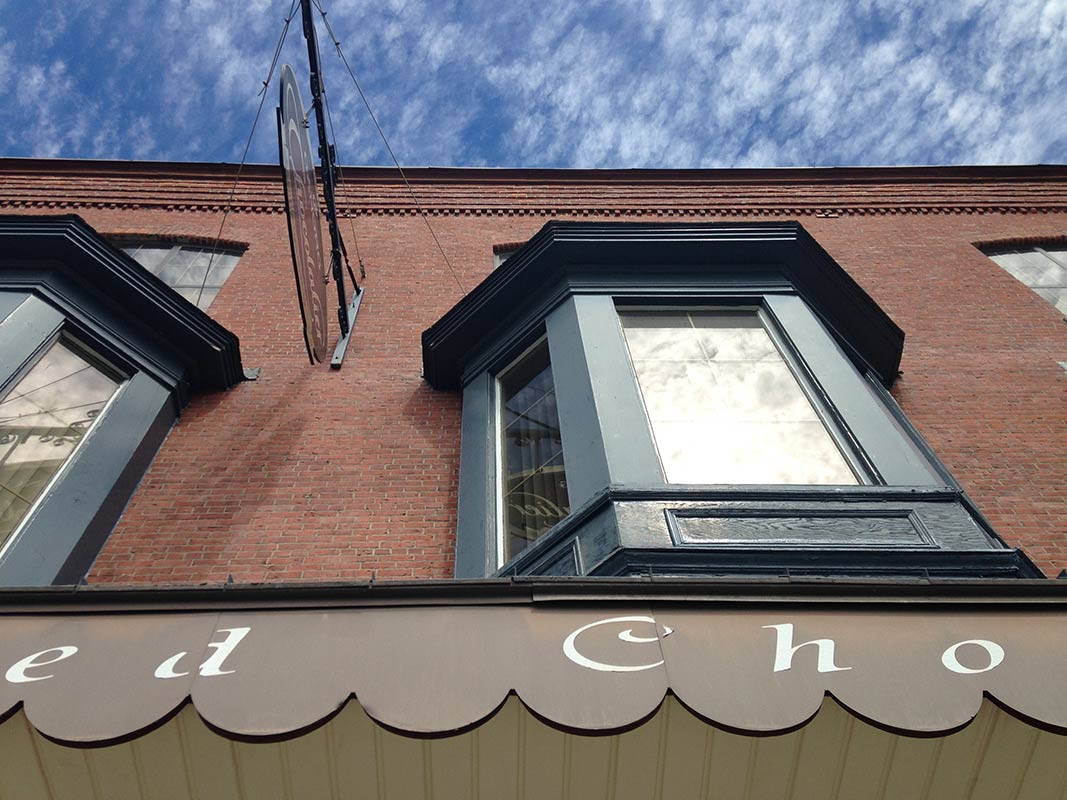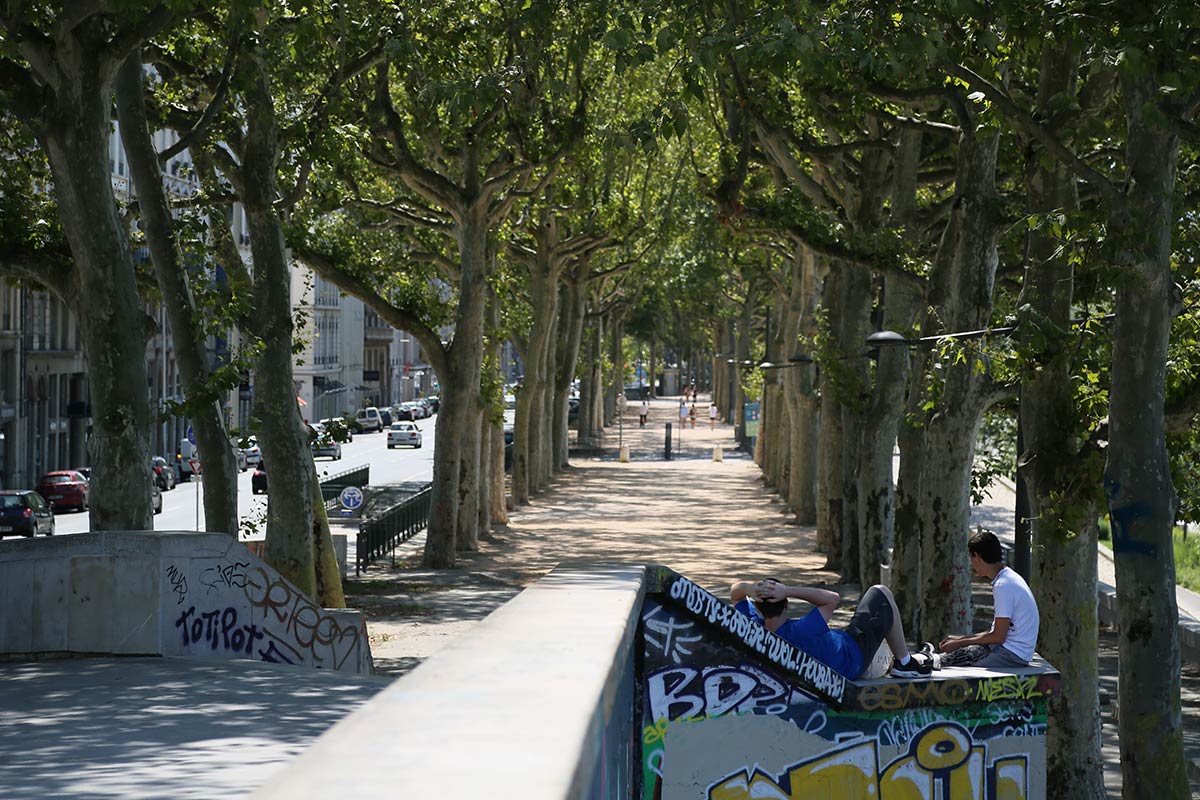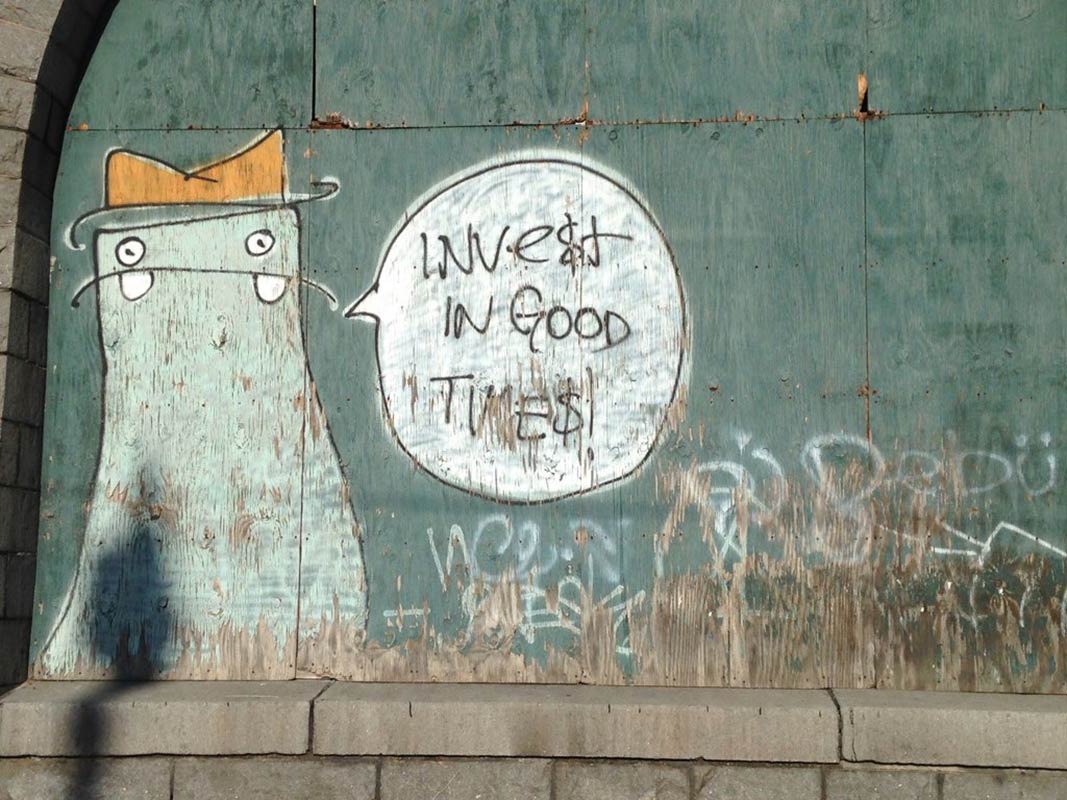Love, folks. It's love. Love conquers all. At least that has been my almost unbearably hackneyed conclusion so far.
Last week, I was asked to join a panel discussion posed with the question, What role does placemaking have in building sustainable communities? This gave me a great excuse to break down and map out my personal theory of change. Here it is: love and working together. Have no doubt, the triteness is not lost on me - I grimace even writing this, but I really believe there's something to it.
Vacuum-Driven Development
I arrived in the world of regeneration and "sustainable development" with an honest-to-goodness optimism about policy-driven change. Call it institutionalism or what have you, but I believed like so many of us do that the right policies and incentives could build the world we want. My MPhil (in something called Planning, Growth, and Regeneration) was an entire degree focused on the policies and economic tools employed in regenerating places. I still believe policy is important and essential, such as putting a price on greenhouse gas emissions and installing feedback systems like road pricing. There are housing policies and anti-policies that I can get behind, and let's not forget about parking maximums. Where my confidence falters is in the zone of traditional economic development policy, the stuff of business parks and tax perks.
 The Ganong Chocolate Factory in St. Stephen, New Brunswick has long been at the centre of the community. The Ganong family loves this town and has been leading the charge to spruce it up, one step at a time.
The Ganong Chocolate Factory in St. Stephen, New Brunswick has long been at the centre of the community. The Ganong family loves this town and has been leading the charge to spruce it up, one step at a time.
The revelation occurred while attending a conference about struggling rural villages that were desperate to create jobs and retain young people. I had just been contemplating these same challenges for large cities like Liverpool, UK at school and it hit me that everyone feels like a struggling rural village in the globalized economy, except the top dogs like New York, San Francisco, Tokyo, London and Shanghai, etc.
Common practice favours what I call vacuum-driven economic development, where your goal is to suck up more talent, resources, and "job-creators" than your neighbours. We've seen all the tricks to do this, mostly resembling some form of bribery, freebies, or pleading with the government. It's naively self-interested and doesn't scale well. These policies don't work in the long-term for most of us because no matter how much money we throw at it, we can't compete with the awesome vacuum power of the cities at the top of the food chain. Further, there are casualties to an obsession with building "competitive" cities. Aspiring to be a vacuum means endorsing the painful losses of specific communities so that others can win. And we all know life is not a level playing field.
"Love will save this place."
So I began pondering how we could create new value that is independent of the vacuums. Is there a form of value and meaning that creates an unbeatable stickiness, bound up in place? Of course there is: love. Love makes us do irrational things, like stay in a place where we need to fight tooth and nail to create opportunity for ourselves. The number of times family and memories came up when I asked my friends Why do you live where you live? is testament to that.
Men did not love Rome because she was great. She was great because they had loved her.- G.K. Chesterton
We protect, improve, and beautify the places we love. Nowhere is this more obvious today than multi-generation farmers or the First Nations that are putting their lives on the line to protect the places they love and depend on from toxic spills and emissions. In the book, This Changes Everything, Naomi Klein shares the words of Montana rancher Alexis Bonogofsky:
It sounds ridiculous but there's this one spot where I can sit on the sandstone rock and you know that the mule deer are coming up and migrating through, you just watch these huge herds come through, and you know that they've been doing that for thousands and thousands of years. And you sit there and you feel connected to that. And sometimes it's almost like you can feel the earth breathe. That connection to this place and the love that people have for it, that's what Arch Coal doesn't get. They underestimate that. They don't understand it so they disregard it. And that's what in the end will save that place. Is not the hatred of the coal companies, or anger, but love will save this place.Alexis Bonogofsky as quoted in This Changes Everything
The words of a rancher can easily be transferred to our awe for the cities we love. Who doesn't gaze from the street and appreciate the hours of sweat and care that went into building and maintaining beloved urban places. Who doesn't ruminate on the thousands of days before, where someone has sat just like you and watched the daily activities unfold? Who doesn't feel a tingle of connection when walking along a well-worn footpath? I believe love will save our places too, if they are indeed loveable.
 Young guys hanging out and enjoying the beauty and careful cultivation of Lyon, France.
Young guys hanging out and enjoying the beauty and careful cultivation of Lyon, France.
How do you make a place more loveable?
Answering this question has become my raison d'etre - I only take on work that I deem "projects for places we love." So far, what I've found is that it comes down to working together, intervention, and celebration.
The working together part has been my key learning from adventures in the human side of city building. The process of working alongside others on something worthwhile or just plain fun has actually created my strongest ties to this city. Working together creates bonds with people and place, and powerful memories of joint accomplishment. It's an investment in relationships and the place you live, but it's also motivation for others. (See what I mean by checking out Summer Institute).
The trouble is, we often lack venues and opportunities to work together or even be together nowadays. We live in an isolated world and most of our city spaces are in need of an intervention. Great blocks and neighbourhoods give people excuses to linger, to volunteer, to ask questions and take part. Even as citizens, without a City Hall paycheque or engineering/planning/architecture degree, we can all create our own interventions or playful additions to our urban habitat. This is the physical side of city-building that communities are rapidly prototyping across the world. Our interventions can reinforce the humanness of our cities and give us reasons and avenues to work together. (See what I mean by checking out Places I Don't Want to Sit).
Finally, it's important to celebrate. Like the harvest feasts of yesteryear, we can validate hard work with the act of celebration. Food, drink, art, music, dancing - this is all so much more wonderful when it's well-deserved. A tradition of gratitude for our neighbours, for the places we share, and for the forces and co-existence that nurture them helps to keep the good work flowing. (See what I mean by checking out Welcome Home Vision)
 Street art from Memphis, TN: Invest in good times.
Street art from Memphis, TN: Invest in good times.
Our situation is obviously precarious. We've done some serious, perhaps irreversible damage to our climate, ecosystems, finances, and communities. Current levels of inequality are staggering and our political systems are ill-equipped to drive transformation. It can be hard to have any hope at all. But I believe in the places that are loved. I believe that the survival skills we need are gratitude and generosity - caring about each other and our homes enough to learn, adapt, and be resourceful. Humanizing our cities is both a means and an end in doing that. I believe that as long as we're walking that path together, we'll have reason to celebrate.
And there you have it: your daily dose of sickly sweet, anti-wonk, actionable EcDev.
A version of this article was originally posted on Strong Towns.